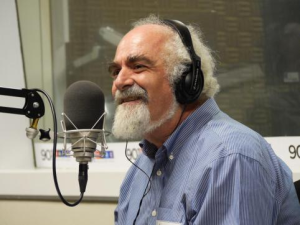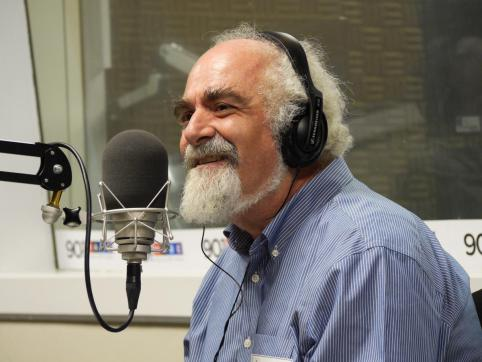 Clifford M. Kuhn, the Oral History Association’s first executive director and a history professor at Georgia State University renowned for his passion for Southern history and for just about everything else he encountered, died Nov. 8 following a heart attack. He was 63.
Clifford M. Kuhn, the Oral History Association’s first executive director and a history professor at Georgia State University renowned for his passion for Southern history and for just about everything else he encountered, died Nov. 8 following a heart attack. He was 63.
A memorial service was held on Dec. 13 at 1 p.m. in the Georgia State University Student Center.
Kuhn, a native of Princeton, New Jersey, where his father was a mathematics professor at Princeton University and his mother worked for the American Civil Liberties Union, was a Northerner who earned respect and accolades from scholars, public officials and everyday people in his adopted city and state of Atlanta, Georgia, where he immersed himself in the region’s history.
Kuhn graduated from Yale University in 1974, taught in Atlanta Public Schools for a year and was involved in independent and public radio programming. In 1993 he earned a doctorate from the University of North Carolina at Chapel Hill and began teaching history at Georgia State the following year.
Long active in the OHA, Kuhn served as president in 2000-2001 and was named the OHA executive director in 2013. He moved quickly to raise the organization’s national profile by successfully applying for membership in the American Council of Learned Societies, a federation of more than 70 organizations that represent the nation’s leading scholarly work in the humanities and social sciences.
His leadership also led to a strategic planning process for the OHA, development of a new logo and membership initiatives, streamlined conference planning, a partnership with the History Channel to develop oral history educational materials for teachers, a revived OHA pamphlet series with publication of Doing Veterans Oral History and transition to an online OHA Newsletter.
OHA officers said in an email to OHA members announcing Kuhn’s death:
“Surely we do not have to tell you what a loss this is–not just to his family and to us in the OHA but to the worldwide oral history movement, to the fields of southern history and public history, to the city of Atlanta, to Georgia State University students and colleagues, and to many, many others.
“Cliff brought high energy, unfailing good humor and generosity, and a larger-than-life personality to everything he did, whether it was welcoming new oral historians to our organization, coaching his sons’ soccer teams, advocating for oral history in front of academic organizations and funding agencies, or making all of the communities he belonged to more democratic, egalitarian, and just.
“For all of these reasons we grieve with Cliff’s wife, Kathie Klein, and their sons Gabe and Josh. We also recommit ourselves to the causes that were so dear to Cliff and resolve to pay forward some of the generosity and encouragement he gave us.
“You might enjoy learning more about the work he did to document and confront Atlanta’s history–and take solace, as we have, in hearing his voice.
“NPR reported on his and others’ efforts to commemorate the centennial of the 1906 Atlanta Race Riot. This work was very near and dear to Cliff; between 2006 and last month he took hundreds, perhaps thousands, of Atlantans and visitors to the city on walking tours of race riot sites in Downtown Atlanta that more often than not resulted in discussions of what we could do to bring racial justice to present-day Atlanta.
“He also recorded hundreds of oral histories for the independent radio station WRFG (“Radio Free Georgia”), which he developed into his book Living Atlanta, and “This Day in History” pieces for the local NPR affiliate WABE, which are archived at WABE.”
In addition to his wife and sons, Kuhn’s survivors include his mother, Estelle Kuhn of New York, and two brothers, Nicholas of Charlottesville, Virginia, and Jonathan of New York.
